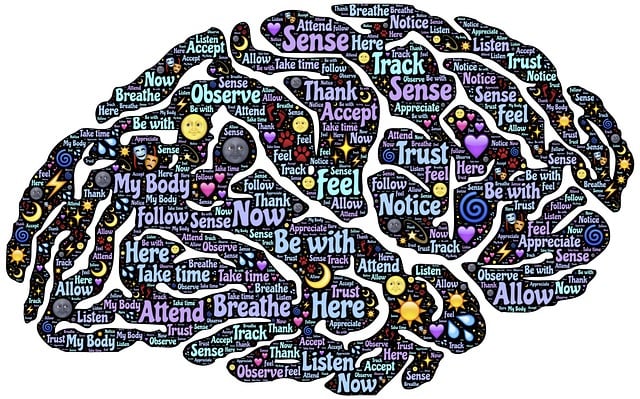The stigma around mental illness creates barriers to essential Denver family counseling and support, leading to prolonged struggle and poor outcomes. By fostering understanding through education, community outreach, and advocacy, such as offered by Denver Family Counseling Therapy, this stigma can be alleviated. Through tailored therapy, workshops, peer support groups, and mindfulness practices, individuals gain resilience, coping skills, and access to necessary resources, ultimately improving mental well-being and quality of life.
Mental illness stigma remains a significant barrier to those seeking help. This article explores targeted efforts to reduce this societal burden, focusing on understanding its profound impact on mental health seekers. We highlight innovative approaches like Denver Family Counseling Therapy, which creates safe spaces for open conversation. Additionally, we discuss educational initiatives, advocacy groups, and support networks that foster understanding, empathy, and recovery in communities across the nation.
- Understanding Stigma: Its Impact on Mental Health Seekers
- Denver Family Counseling Therapy: A Safe Space for Conversation
- Educational Initiatives: Spreading Awareness to Reduce Stigma
- Advocacy and Support Groups: Empowering Recovery and Community
Understanding Stigma: Its Impact on Mental Health Seekers

Stigma surrounding mental illness can create significant barriers for individuals seeking help. It often manifests as negative attitudes and stereotypes, leading to fear, shame, and isolation. Many people struggling with their mental health avoid reaching out for Denver family counseling therapy or professional support due to the fear of judgment or embarrassment. This internalized stigma can prevent them from accessing much-needed resources and treatments, prolonging their suffering.
The impact of stigma is profound, affecting not just an individual’s willingness to seek help but also their overall well-being. It can exacerbate existing symptoms of anxiety, depression, or other mental health disorders. Conversely, efforts to reduce stigma, such as education campaigns and community outreach programs, can foster an environment of understanding and support. This encourages individuals to build resilience, boost confidence in managing their mental health, and find relief from anxiety, ultimately leading to better outcomes and improved quality of life for those affected by mental illness.
Denver Family Counseling Therapy: A Safe Space for Conversation

Denver Family Counseling Therapy provides a safe and supportive environment for individuals and families navigating mental health challenges. By prioritizing an open, non-judgmental space, therapists foster honest conversations that encourage self-reflection and healing. Through evidence-based practices tailored to each client’s unique needs, Denver Family Counseling Therapy promotes emotional well-being improvement, focusing on both individual and familial dynamics.
This counseling service recognizes the profound impact of mental health awareness on breaking down societal barriers. By engaging in therapeutic dialogues, clients gain valuable insights into their thoughts and emotions, cultivating a sense of self-acceptance and empowerment. Through these conversations, Denver Family Counseling Therapy not only aids in managing symptoms but also equips individuals with emotional well-being promotion techniques to thrive in their personal and professional lives.
Educational Initiatives: Spreading Awareness to Reduce Stigma

Educational initiatives play a pivotal role in reducing stigma surrounding mental illness, especially within communities like Denver Family Counseling Therapy. By increasing awareness and fostering open conversations, these efforts seek to dispel myths and promote understanding. Schools, community centers, and healthcare providers can lead these initiatives through workshops, seminars, and peer support groups. Teaching about mental health as a normal part of life, just like physical health, helps break down barriers.
Incorporating practices like Mindfulness Meditation and Self-Care Practices into educational programs equips individuals with tools to manage stress and maintain well-being. Furthermore, Social Skills Training can enhance communication and empathy, fostering supportive environments where those facing mental illness feel less isolated. These holistic approaches not only reduce stigma but also empower individuals to seek help without fear of judgment.
Advocacy and Support Groups: Empowering Recovery and Community

Advocacy and support groups play a pivotal role in reducing the stigma surrounding mental illness. These communities provide a safe space for individuals to share their experiences, fostering understanding and empathy among peers. In Denver Family Counseling Therapy, local support groups offer a network of encouragement, where members can learn from one another’s journeys towards recovery. By sharing stories, participants challenge societal norms and dispel misconceptions about mental health struggles.
These groups empower individuals to take control of their well-being by embracing open conversations about symptoms, treatments, and coping strategies. The collective atmosphere promotes positive thinking and stress management techniques, encouraging members to apply Mind Over Matter principles in their daily lives. Through advocacy and mutual support, these initiatives work towards creating a more inclusive society where mental illness is met with compassion rather than judgment.
Mental illness stigma reduction is a multifaceted approach, as demonstrated by initiatives like Denver Family Counseling Therapy. Through safe spaces for conversation, educational awareness programs, and advocacy groups, we can foster understanding and support for those facing mental health challenges. By continuing these efforts, we move closer to a society where everyone feels comfortable seeking help without fear of judgment or discrimination, ultimately enhancing the well-being of our communities.














